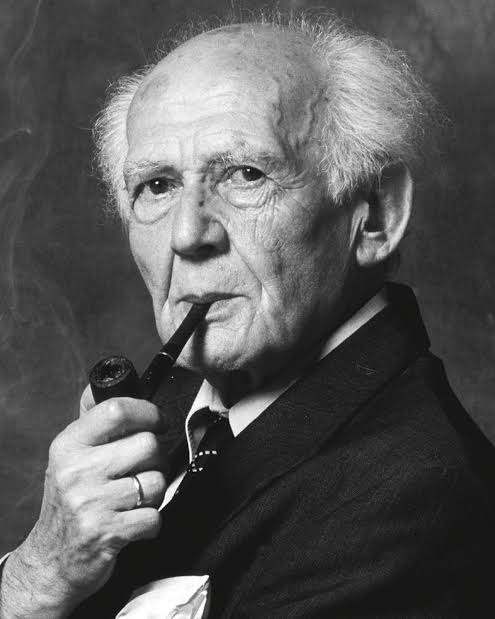CIRCULATION AND LEGITIMATION OF MEANINGS IN SPECIAL EDUCATION FROM AN INCLUSIVE PERSPECTIVE: implications for the Pedagogy Course (Professional and Technological Education) offered online by Federal Institutes
DOI:
https://doi.org/10.18764/2236-4099v13n33.2023.11Keywords:
Meanings, Special education, Curriculum, Emancipatory educationAbstract
The concepts of Discursive Formation (DF), Ideological Formation (IF) and Conditions of Production (CP) are presented with the aim of detecting the dissemination and validation of meanings and effects of meanings present in the Pedagogical Project of the Pedagogy Course (Professional and Technological Education) offered in a Network by the Federal Institute of Education, Science and Technology of Maranhão (IFMA), in relation to Special Education from the perspective of Inclusion. To do this, information was gathered by forming an archival Discursive Corpus, in order to carry out an initial description of the empirical linguistic data in its semantic depth and then carry out the interpretation, since the analysis begins when the Corpus is formed. At this stage, the concepts of French Discourse Analysis (DA) are used in order to establish a theoretical framework at the end of the research. Through the individualization of a theoreticalanalytical reference, Interdiscursivity, the Pedagogical Project is understood as a social space of Discursive Memory, based on the production of the subjects, as a place of language of the already mentioned and pre-constructed, bringing the importance of historicity in the formation of some of the diverse meanings of Special Education from an Inclusive perspective. By analyzing the Discursive Formations (DF) and focusing on the main meanings present in the texts of the syllabus, it was possible to identify the presence of meanings sometimes linked to dominant positions, sometimes to opposing ones,
through the mechanisms of paraphrase and polysemy found in them and in other linguistic evidence.
Downloads
References
APPLE, M. W. A política do conhecimento oficial: faz sentido a ideia de um currículo nacional? IN: MOREIRA, AFB; DA SILVA, TT (Org.). Currículo, cultura e sociedade. 2002.
APPLE, Michael. Educando à direita: mercados, padrões, Deus e desigualdade. São Paulo: Cortez, 2001.
BRASIL. Decreto nº 10.502, de 30 de setembro de 2020. Institui a Política Nacional de Educação Especial: Equitativa, Inclusiva e com Aprendizado ao Longo da Vida. Diário Oficial da União, Brasília, 1 de outubro de 2020. Seção 1, p. 6-8. Disponível em: <https://www.in.gov.br/en/web/dou/-/decreto-n-10.502-de-30-de-setembro-de-2020-280529948> Acesso em: 22 de mai. de 2024.
BRASIL. Lei de diretrizes e bases da educação nacional. 1996.
DORE, R. Afinal, o que significa o trabalho como princípio educativo em Gramsci?. Cadernos CEDES, v. 34, n. 94, p. 297-316, set. 2014. Disponível em <https://www.scielo.br/j/ccedes/a/RHGqjsJdnCy8BztKwpgGP3Q/abstract/?lang=pt#> Acesso em 12 out. 2024.
GIL, Antonio Carlos. Métodos e técnicas de pesquisa social. 6 ed. São Paulo: Atlas, 2008.
GRAMSCI, Antonio. Cadernos do Cárcere. Rio de Janeiro: Civilização Brasileira, trad. e ed. Carlos Nelson Coutinho; co-edição Luiz Sérgio Henriques e Marco Aurélio Nogueira, VOL.I, 2004.
LIBÂNEO, José Carlos. Didática. São Paulo: Cortez, 1994. (Coleção magistério. 2º grau. Série formação do professor).
LOPES, M.C. Surdez e educação. 2. ed. Belo Horizonte: Autêntica, 2011. Disponível em: <https://plataforma.bvirtual.com.br/>. Acesso em: 18 ago. 2024.
MACHADO, G. C. Caminhos para a educação inclusiva: a construção dos saberes
necessários na formação e na experiência dos professores. 1. ed. Jundiaí, SP: Paco, 2020.
Disponível em: https://plataforma.bvirtual.com.br/. Acesso em: 18 ago. 2024
MINISTÉRIO DA EDUCAÇÃO. Secretaria de Educação Profissional e Tecnológica. Projeto pedagógico do curso de Pedagogia e Educação Profissional e Tecnológica. Brasília, 2018.
ORLANDI, Eni P. Análise de discurso: princípios e procedimentos. 11 ed. Campinas São Paulo: Pontes Editores, 2013.
PEREIRA, M. C. C; CHOI, D. Libras: conhecimento além dos sinais. São Paulo: Pearson, 2011. Disponível em: https://plataforma.bvirtual.com.br/. Acesso em: 8 mar. 2023.
QUADROS, R. M. de; KARNOPP, L. B. Língua de sinais brasileira: estudos linguísticos. Porto Alegre: Artmed, 2004.
RAMOS, M. N. História e política da educação profissional. Curitiba: Instituto Federal do Paraná, 2014.
SAVIANI, Dermeval. Pedagogia histórico-crítica: primeiras aproximações. 11. ed. Campinas: Autores Associados, 2011.
SILVA, A. M. Educação especial e inclusão escolar: história e fundamentos. Curitiba:
InterSaberes, 2012. Disponível em: https://plataforma.bvirtual.com.br/. Acesso em: 18 ago. 2024.
SILVA, Anita Maria Ferreira da; SILVA, Elaine Kendall Santana; MAZUR, Luciana Cristina. Discurso universitário: uma reflexão sobre a linguagem e os sentidos. 2008.
ZILIOTTO, G. S. Educação especial na perspectiva inclusiva: fundamentos psicológicos e
biológicos. 1. ed. Curitiba: InterSaberes, 2015. Disponível em:
https://plataforma.bvirtual.com.br/. Acesso em: 18 ago. 2024.
Downloads
Published
How to Cite
Issue
Section
License
Copyright (c) 2024 Cadernos Zygmunt Bauman

This work is licensed under a Creative Commons Attribution 4.0 International License.
Direitos autorais Cadernos Zygmunt Bauman
Este obra está licenciado com uma Licença Creative Commons Atribuição 4.0 Internacional.








